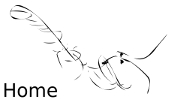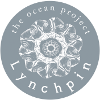Living Data:
Cooperation
2019 Conversations
Disclaimers, Copyrights and Citations
Conversations/Index 2010 2011 2012 2013 2014 2015 2016 2017 2018 2019 2020 2021 2022 2023 2024
"Mother Earth births everything for us.
Father sky carries the water and oxygen for us to breathe."
Yuin Elder Max Dulumunmun Harrison, 2009
 28th February 2019
28th February 2019
Scientist James O'Brien discusses surprising relationships
between whales, krill, phytoplankton and humans.
Scientist James O'Brienreturns from a voyage to Antarctica with an interdisciplinary team including Living Data veteran krill biologist So Kawaguchi, and explains the nature and purpose of the voyage, his role as a scientist
and his personal experience of life in the ocean.
TRANSCRIPT
Lisa Roberts:
You've been in amongst it for days on end...
James O'Brien: Yes.
Lisa :
...and been part of that extent.
James:
Yes, that's a very apt word, and this is something that I took away from the voyage, and I said to a lot of people and they were, yeah, funny looks, but what I did take away from this was a huge appreciation and I was quite enamoured of krill. The blue whales are wonderful, they were spectacular to see, but seeing the size and extent of the krill, just as So would've put it, their sheer numbers, their biomass which is just - they outnumber humans in terms of biomass. I think Rob [Rob King] had the exact calculation... so they're outnumbering us in terms of biomass, and then also just - I don't know- their control. So what I observed in this - because I was looking at this from a microbial perspective - it is my interest, it's what keeps me up at night, and krill are obviously macroinvertembrates - I can see them, so they don't get that partition in that part of my brain - but to see when they were present, just how little of what I was wanting were present. I was astonished and we were saying, if there were krill here, we won't have chlorophyll here... obviously chlorophyll is the pigment inside the phytoplankton - and that's what we use as a proxy to estimate their abundance - or how many phytoplankton are there, as a very crude measurement - if krill were there, there was not much chlorophyll A, which basically meant they are so efficient at devouring their prey...
Lisa :
Yes! I was going to say, it's inside them.
James: Yes, and look, we have some beautiful photos of those [phytoplankton] too. Rob and I did some very preliminary experiments where I just turned to Rob and I said, "The krill that you pulled up today, were they very green?" "Ooh, the greenest!" And yes, if you look inside their stomach, if you look inside their digestive gland which is the large gland that you see quite clearly through their carapace, ah, green, if they've been feeding. And you see that in the measurements, or at least the preliminary measurements we have so far, is that, yeah, there was not a lot of chlorophyll comparative to areas where there were not krill. So, yeah, their control, and this must be a product of their numbers. It's astounding.
Lisa:
I think they're an inspiration...
James: Yeah.
Lisa :
...their capacity to, ah, just to survive, and to have evolved...
James O'Brien: Yes.
Lisa:
...to be what they.
I'm not worried about krill. I get a lot of questions from people about krill pills and all sorts of stuff, krill fishing...
James:
Yeah.
Lisa :
...and it has been on my mind for a while because I know the krill research is in fact funded by the krill fisheries...
James:
Often, Yeah.
Lisa :
...but I also appreciate that that's fantastic because if it weren't the case, you'd have the fishing industry ungoverned and there wouldn't be safe catches estimated. And the only people really who can estimate a safe catch are the scientists, which is why we have CCAMLR [Commission for the Conservation of Antarctic Marine Living Resources].
...
James:
Yep.
Lisa :
So that's a tricky thing I've had to convince people of, that actually, Don't worry about the krill. Worry about the humans. It's we who have to adapt our behaviours.
5:08 / 28:20
James:
Yeah, I would agree.
And I think the one, maybe snippet of worry I might have about krill is due to human behaviour, and I'm not talking about climate change in this exact moment. It is that the current stocks of krill that we have, I think the estimates that we're having right now, are looking at numbers... that are based on the abundance of krill, are based on an environment and a world which has a diminished number of their predators, in particular whales.
Lisa :
Today's world.
James:
Today's world, yes. So I guess what I'm saying is that... if we hopefully reset the cycle... and there are some reports coming out that specific whale populations are increasing - there are some reports saying there are too many whales - that the number of krill that we're seeing, can it support a natural population of whales? A population which isn't being decimated by human fisheries. Obviously we may never have that, because there are such major fisheries, like Japan and Norway for example, but if those numbers of whales increase - which don't get me wrong I would love to see - that is my only worry for the krill - is, are the current stocks that the world is supporting, that our primary production [phytoplankton] is supporting, ]- and this is maybe where climate change comes into it, because as we're warming the globe, we're slowing down the ocean currents and the ocean currents are the major things that, particularly in the poles, support that upward course of nutrients which allows a lot of productivity in the ocean. So that would be my only concern is, Are the primary producers able to be productive enough for the krill - the consumers that are then ultimately being predated on. And that's a balance, it really is.
Lisa :
I've had this discussion with Steve Nicol.
James:
Yep, so someone far more informed in this than I am.
Lisa :
...and he argues that in a world where there were many more whales, there were many more krill.
James:
Yes, OK.
Lisa :
And the reason for that is the whale poo cycle.
James:
OK.
Lisa :
So it might be worth having a look at his book, Nicols' book [The Curious Life of Krill: A Conservation Story from the Bottom of the World. Pub. Island Press, 2018]
James:
I will have a look.
Lisa :
...because he explains that quite clearly. 'Cause that's an argument, another argument, that a lot of non-scientists level with me and I've had to find out how to answer that: Oh, you know, we have more whales and they're eating all the food for krill and isn't that bad for krill. Like, you know, nothing's that simple.
ERROR:
What Lisa really meant to say is that some non-scientists worry that with more whales around there are more krill eaten and less numbers of krill in the ocean. She meant to say that more whales actually means more krill, as more whale poo fertilizes the ocean so more phytoplankton grow and reproduce, and so become food for krill to likewise grow and reproduce.
See "whale poo hypothesis", Nicol 2014 p.98.
Lisa :
It's also more complex because we also have ocean acidification and I know that So and Steve have published papers predicting the demise of krill because the eggs simply won't hatch.
James:
Yeah.
Lisa :
And they've done experiments to prove that.
James:
Yeah.












